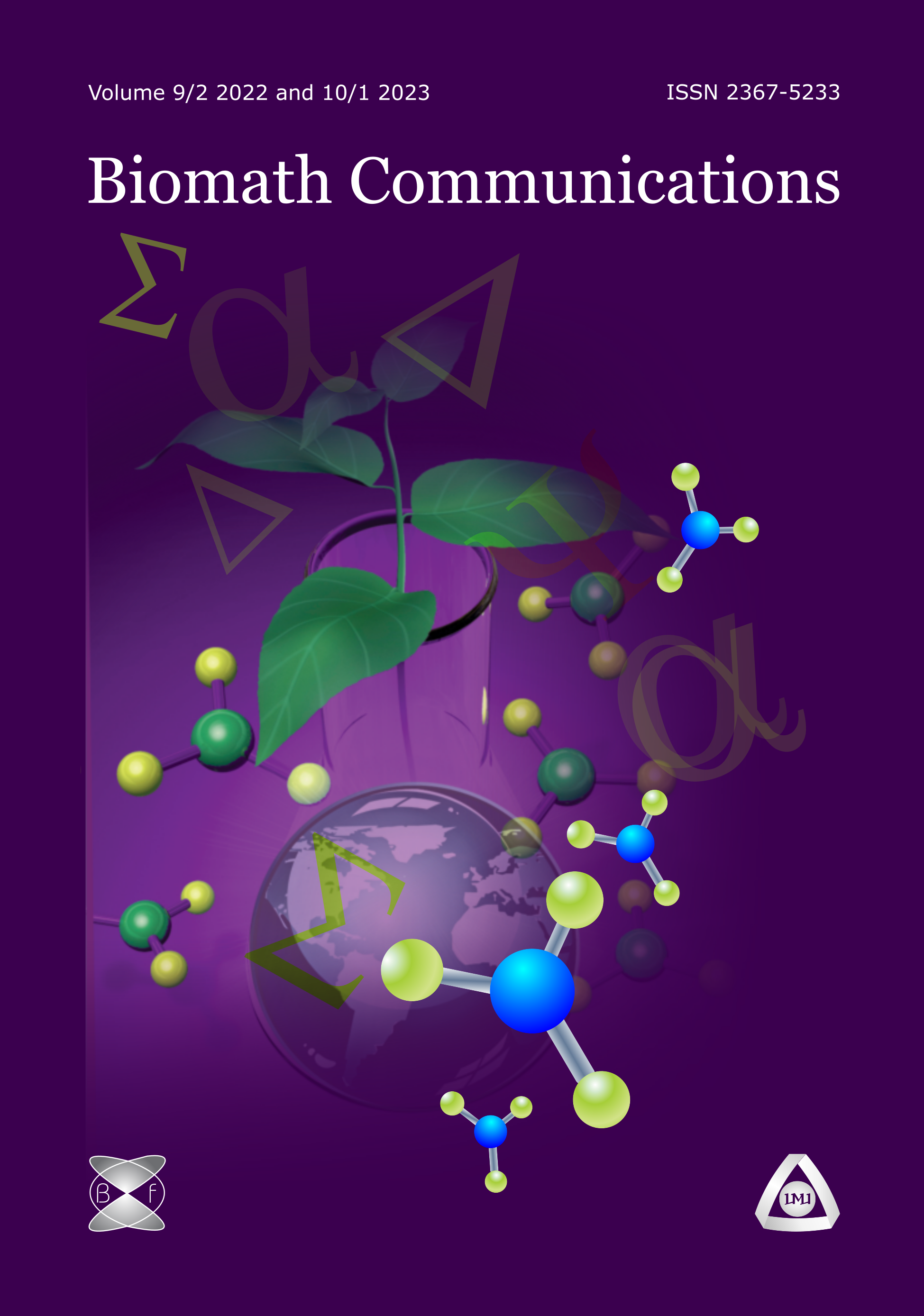Zero-Eigenvalue Turing Instability in General Chemical Reaction Networks
DOI:
https://doi.org/10.11145/165Abstract
Biochemical reaction networks with diffusion are usually modeled by reaction-diffusion systems of equations and are studied in connection with pattern formation in biology. We say thatВ В Turing instability occurs if a spatially homogeneous equilibrium is asymptotically stable as a solution of the ordinary differential equation system and unstable as a solution ofВ В the correspondingВ reaction-diffusion systems of equations. We describe aВ necessary condition for zero-eigenvalue Turing instability, i.e., Turing instability arising from a real eigenvalue changing sign from negative to positive,В for generalВ В chemical reaction networksВ with any number of species,В modeled with mass-action kinetics. The reaction mechanisms are represented by the species-reaction graph (SR graph) which is an undirected bipartite graph. If the SR graph satisfies certain conditions, similar to the conditions for ruling outВ multiple equilibria in spatially homogeneous differential equations systems, then the correspondingВ mass-action reaction-diffusion system cannot exhibit zero-eigenvalue Turing instability for anyВ parameter values, rate constants and diffusion coefficients.Downloads
Published
Issue
Section
License
The journal Biomath Communications is an open access journal. All published articles are immeditely available online and the respective DOI link activated. All articles can be access for free and no reader registration of any sort is required. No fees are charged to authors for article submission or processing. Online publications are funded through volunteer work, donations and grants.
Authors who publish with this journal agree to the following terms:
- Authors retain copyright and grant the journal right of first publication with the work simultaneously licensed under a Creative Commons Attribution License 4.0 that allows others to share the work with an acknowledgement of the work's authorship and initial publication in this journal.
- Authors are able to enter into separate, additional contractual arrangements for the non-exclusive distribution of the journal's published version of the work (e.g., post it to an institutional repository or publish it in a book), with an acknowledgement of its initial publication in this journal.
- Authors are permitted and encouraged to post their work online (e.g., in institutional repositories or on their website) prior to and during the submission process, as it can lead to productive exchanges, as well as earlier and greater citation of published work (See The Effect of Open Access).

